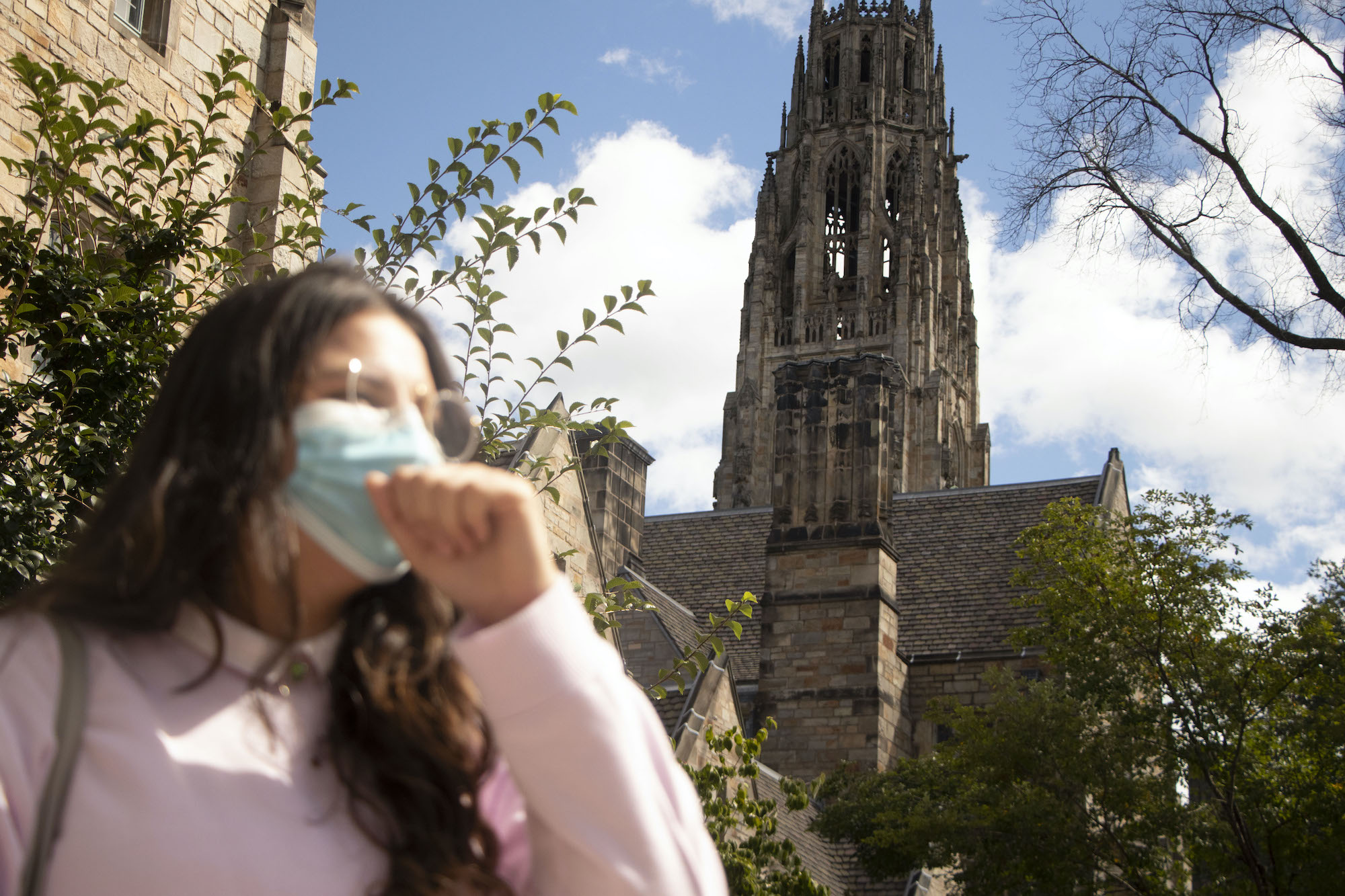
The newsletters in my inbox reassure me that we’re on our way out of the pandemic. Apparently, we’re well on the way to COVID-19 being declared endemic, like strep, mono or the flu. The New York Times says Omicron isn’t as bad as Delta; Dean Chun reassures us that if we’re “young, healthy, vaccinated and boosted” our COVID-19 cases will be mild — only the elderly, the sick and the unvaccinated need worry.
These claims are misleading. If keeping the most vulnerable members of our community safe isn’t incentive enough, consider some advice from a COVID-19 long hauler: You should be taking COVID-19 seriously to protect yourself.
If all 4,664 undergraduates were to contract COVID-19, almost 500 of them would likely experience the long-term symptoms that come with long COVID-19. We’re talking about struggling to walk to class, light sensitivity that makes every classroom feel uninhabitable, fatigue that makes reading for more than fifteen minutes impossible and an uncountable number of other challenges with activities of daily living. If you get COVID-19, there’s a small but significant possibility that you’ll come out on the other side qualifying for accessible transit. Hard to enjoy a frat party if just getting to High Street leaves you exhausted.
The media talks about long COVID, or post-acute sequelae of COVID-19 — PASC — either in the abstract or as an exceptionally severe illness that afflicts the unfortunate few. And while headlines pop up almost daily claiming that we’ve found the key to long COVID, none have translated into clinical treatment options that make it easier for long haulers to get through the day.
It’s been six months since my own COVID-19 infection. I’m still sick, and I’ve learned firsthand that most doctors don’t know how to help long COVID patients. Before a post-COVID-19 specialist prescribed me beta-blockers, a cardiologist offered me physical therapy to get me “back in shape” – nevermind the fact that my condition deteriorated severely only after I began exercising again, a common yet under-recognized symptom called post-exertional malaise.
I’m told I’m one of the lucky ones. My symptoms are mild enough for me to manage my own care, and because of my parents’ insurance I have access to doctors outside of Yale Health with more experience treating patients like me. Even so, this privilege didn’t save me from going the entire fall semester without enough oxygen in my brain. My healthcare providers didn’t think my persistent symptoms were anything worth investigating until I learned I had to advocate for myself.
Before I had doctors, I had support groups. Communities like Body Politic and organizations like Long COVID Physio have given me strategies and advice that my doctors didn’t, advice that has made it more possible for me to function. At Yale, the Chronic Illness Peer Support Network has offered me a crucial safety net. All of us with long COVID-19 are indebted to people who have been living with post-viral syndromes like POTS and ME/CFS: those who have learned to live with chronic illness despite societal neglect and medical mismanagement and have been generous enough to share their accumulated expertise. After losing a week of my fall semester to a 20 minute jog, the chronic illness community is why I’m likely to finish my senior spring — even if I have to crawl my way across the platform at graduation.
We are in collective denial about the potentially life-altering effects of a COVID-19 infection. If we were more aware of the risks, it’s hard to imagine that we would be so cavalier in saying that “everyone will get COVID” as if it were a benign inevitability.
Long COVID brings to light something that has always been true: We are all only temporarily able-bodied. Ignoring the significance of long COVID and other post-viral syndromes allows us to continue entertaining fantasies of our own omnipotence and insulates us from the deep-seated anxiety that one day we may no longer be able to work or care for ourselves — anxiety, not fear, because we all know how the world treats people with disabilities. When we say that COVID-19 is only a risk for the immunocompromised and elderly, we affirm the tacit cultural belief that the chronically ill, immunocompromised, elderly and disabled aren’t worth protecting. Ableism breeds stubborn hubris, but trust that if you get sick, the world will disregard you just as much as it does the rest of us.
COVID-19 isn’t going anywhere, nor are other viruses that cause similar post-viral syndromes. As a result, we have an ethical obligation to be more intentional about how we support people with disabilities — not only for the sake of hypothetical others, but for ourselves. Long COVID-19 offers us the chance to take steps toward dismantling the systems and beliefs that keep some of the most marginalized among us from living their lives to their fullest potential.
As a start, members of the Yale community need to understand that as much as campus life has to gain from looser COVID-19 restrictions, post-COVID-19, we have our lives as we know them to lose. The institution, of course, also has its obligations: Yale can ensure that everyone coming out of COVID-19 isolation receives counseling and follow-up on long COVID-19, recovery, pacing and accommodations available to them through Student Accessibility Services if needed. As a nation, we need to build our health and social services infrastructure to support those who become disabled in the process of “ending” the pandemic.
Going “back to normal” and “bringing college back” would certainly increase the scope of some folks’ individual freedoms. But informed consent requires that we acknowledge the benefits and risks. Everyone may get COVID-19, but not everyone will be okay.
Morgan Baker is a senior in Jonathan Edwards College. Contact them at morgan.baker@yale.edu.







